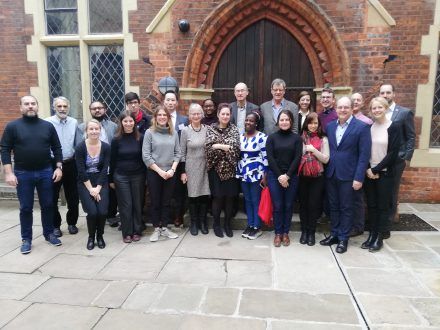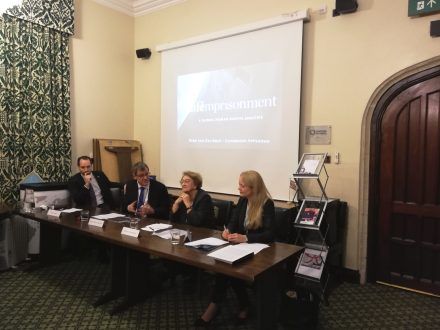The right to hope: PRI co-hosts international strategy forum on life imprisonment

This week, Penal Reform International and the University of Nottingham organised an international civil society strategy forum on life imprisonment, which took place in London from 11–12 December 2018.
The two-day forum brought together key civil society actors (alongside stakeholders from academic institutions) from around the world to discuss and strategise how to tackle the increase and implementation of the use of life imprisonment. Speakers included PRI’s Dirk van Zyl Smit and Dr Catherine Appleton from the University of Nottingham, Marc Mauer of The Sentencing Project and Aurélie Placais from the World Coalition Against the Death Penalty. Desmond Skyers also spoke about his own lived experience of a life sentence. A number of workshops were held to discuss and share key issues, reflect upon what has worked in similar movements – such as abolition of the death penalty – and strategise on how the UN Crime Congress in 2020 can be used to encourage UN member states to rethink and eventually rewrite and expand its guidance on life imprisonment. The organisations present agreed to work towards forming a global coalition on life imprisonment in 2019.

PRI also organised an event at the Houses of Parliament on Monday 10 December – International Human Rights Day – in which PRI’s Chair, Professor Dirk van Zyl Smit, and Dr Catherine Appleton of the University of Nottingham presented their new book, Life imprisonment: A global human rights analysis. The book is the first ever global survey of prisoners serving life terms and argues for a human rights–based reappraisal of this exceptionally severe punishment. Baroness Vivien Stern, Chair of the UK All Party Parliamentary Group on the Abolition of the Death Penalty, provided the opening remarks and PRI’s Executive Director, Florian Irminger, discussed the need to find a universal solution to inhumane life sentences without parole. Earlier this year, PRI and the University of Nottingham published a briefing on life imprisonment, which assesses the use of life imprisonment as a global phenomenon and makes a number of recommendations. The briefing is available in English, Arabic and Russian.
Between the years 2000 and 2014, there was an increase of almost 84 per cent in the number of those serving formal life sentences worldwide. Life imprisonment has replaced the death penalty in many systems, but, unlike capital punishment, relatively little is known about the sanction. Its legitimacy and impact on the human rights of those serving life imprisonment has not received adequate attention. The United Nations, for example, last issued a report on life imprisonment in 1994, more than 20 years ago.